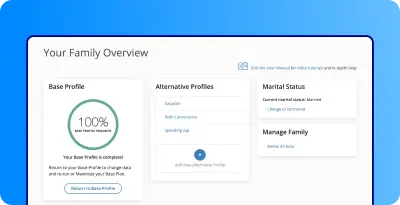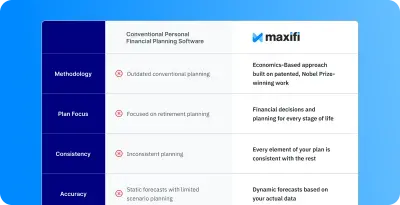Probate
Probate is the court-supervised legal process through which a deceased person's estate is settled, debts are paid, and assets are distributed to heirs or beneficiaries. This process involves validating a will (if one exists), appointing a personal representative, inventorying assets, paying creditors, and transferring remaining property according to the will or state intestacy laws.
Understanding probate provides essential context for estate planning discussions, as the process affects timing, costs, privacy, and the ultimate distribution of assets after death. Whether an estate goes through probate depends on factors including asset types, ownership structures, beneficiary designations, and state-specific thresholds. The probate process varies significantly by jurisdiction, with some states offering simplified procedures for smaller estates while others require full court supervision regardless of estate size.
Estate planning often involves strategies to minimize or avoid probate where appropriate, though probate serves important legal functions including creditor protection, clear title transfer, and dispute resolution. The decision about which assets to structure for probate avoidance depends on individual circumstances, family dynamics, asset complexity, and state laws.

Key Takeaways
This guide explores the probate process, court procedures, timeline considerations, cost factors, and common probate avoidance strategies. Whether evaluating estate planning options or navigating the settlement of a loved one's estate, understanding these concepts provides a foundation for informed discussions with estate planning attorneys and financial professionals.
- Probate is a court-supervised process that validates wills, settles debts, and distributes a deceased person's assets to beneficiaries
- A will does not avoid probate but rather provides instructions for how assets should be distributed during the probate process
- Probate court appoints an executor or administrator who receives legal authority through Letters Testamentary or Letters of Administration
- Many assets bypass probate automatically including retirement accounts with beneficiaries, life insurance policies, trust property, and jointly owned assets with survivorship rights
- The probate process involves multiple steps including filing petitions, inventorying assets, notifying creditors, paying debts and taxes, and distributing remaining property
- Probate costs typically include court fees, attorney fees, and executor compensation which are paid from the estate before distribution to heirs
- Timeline for probate ranges from several months to over a year depending on estate complexity, creditor claims, and potential disputes
- Living trusts are commonly discussed as a probate avoidance tool as trust property passes directly to beneficiaries without court supervision
- Beneficiary designations on accounts allow direct transfer through payable-on-death and transfer-on-death mechanisms that bypass probate
- Joint ownership with survivorship rights transfers property automatically to the surviving owner without probate involvement
What Is Probate?
Probate is the court-supervised process of settling a person's estate after death. It oversees the execution of wills, ensuring that debts and taxes are paid, and remaining assets are correctly distributed to beneficiaries.
Probate is handled through a specialized probate court, which appoints the executor if one is named in the will or an administrator if there is no will. The court oversees filings, creditor claims, and the final transfer of property.
The term "probate" derives from the Latin word "probare," meaning "to prove," reflecting the process of proving the validity of a will. When someone dies with a will (testate), probate court verifies the document's authenticity, ensures it meets legal requirements, and confirms the deceased person's intent. When someone dies without a will (intestate), the court follows state intestacy laws to determine how property is distributed among surviving relatives.
Probate serves several legal functions beyond asset distribution. The process provides a formal mechanism for creditors to submit claims against the estate, ensures proper payment of final income taxes and estate taxes (if applicable), establishes clear title for real estate transfers, and offers a structured forum for resolving disputes among heirs or between heirs and creditors.
Rules about probate can differ by state and some states do not use the term "probate" but instead refer to a surrogate's court, orphan's court, or chancery court. State-specific variations also include different threshold amounts for simplified probate procedures, varying fee structures, and distinct requirements for executor bonds and court supervision levels. Make sure to review the specific laws of the state which you are probating your will in.
How Probate Works
The probate process begins when a petition is filed with the probate court to open the estate. The person filing the petition, normally the executor or close family member, must file the original will and a copy of the certified death certificate. If a valid will exists, the court confirms the executor named in the document. If there is no will, the court appoints an administrator to carry out the same responsibilities.
To give this person legal authority, the court issues Letters Testamentary (or Letters of Administration). These documents allow the executor to manage the estate, pay bills, sell assets if needed, and handle other responsibilities. In some cases, the executor must also post bond as protection against errors or misconduct.
Key Responsibilities During Probate
Once the estate is opened, the executor or administrator has several key duties:
- Inventorying Assets: Identifying and valuing real estate, accounts, investments, and personal property
- Notifying Creditors and Beneficiaries: Ensuring debts and claims are submitted and heirs are informed
- Paying Debts and Taxes: Using estate funds to settle valid claims, final bills, and required tax returns
- Managing Disputes: The court may hold additional hearings if objections to the will or claims against the estate arise
- Distributing Property: After obligations are met, remaining assets are transferred to beneficiaries according to the will or state law
The notification process typically involves publishing a notice to creditors in local newspapers and directly contacting known creditors. State laws establish specific timeframes during which creditors can file claims, commonly ranging from three to six months after notice publication. This creditor claim period represents one of the primary reasons probate extends over several months even for straightforward estates.
Asset valuation may require professional appraisals for real estate, business interests, or valuable personal property. The executor files an inventory with the probate court documenting all estate assets and their fair market values as of the date of death. This inventory becomes part of the public probate record and serves as the basis for calculating any estate taxes owed.
The executor must also provide a final accounting to the probate court. Once the court approves this report, the estate is formally closed. The entire process can take months, or for complex estates or contested wills, over a year.
Assets That Go Through Probate vs. Non-Probate Assets
Understanding which assets require probate and which transfer outside the probate process is fundamental to estate planning. Assets that go through probate generally include those owned solely in the deceased person's name without beneficiary designations or survivorship provisions.
Assets typically subject to probate include solely owned real estate, bank accounts in the deceased person's name only, vehicles titled only to the deceased, business interests without succession agreements, personal property and household items, and investment accounts without transfer-on-death designations. These assets cannot be distributed until the probate court authorizes the transfer.
Certain assets pass directly to beneficiaries and do not go through probate. These include:
- Retirement accounts such as IRAs or 401(k)s with named beneficiaries
- Life insurance policies and pension distributions with beneficiaries
- Property in a living trust
- Funds in payable-on-death (POD) accounts or savings bonds
- Transfer-on-death (TOD) securities
- Assets held in joint tenancy with right of survivorship
- Property owned as tenancy by the entirety (available in some states for married couples)
- Unpaid wages or commissions up to a state limit
- Vehicles, household goods, and personal items that state law allows for immediate family
These exceptions can simplify estate settlement and reduce the need for court involvement. However, beneficiary designations must be current and properly documented to function as intended. Outdated beneficiary forms, designations to deceased individuals, or conflicts between beneficiary designations and will provisions can create complications that may require court resolution.
Do Wills Avoid Probate?
A common misconception is that having a will means probate is unnecessary. In reality, a will does not avoid probate; it simply provides instructions for how property should be distributed. Probate court must still validate the will before assets can be transferred. To bypass probate altogether, tools such as trust or beneficiary designations can be utilized.
A will serves as a guide for the probate court rather than a replacement for probate. The document nominates an executor, specifies beneficiaries for assets subject to probate, names guardians for minor children (subject to court approval), and expresses the deceased person's wishes regarding asset distribution. The probate court reviews the will to ensure it meets legal requirements including proper execution with witnesses, testamentary capacity, and absence of undue influence or fraud.
Even with a clear, legally valid will, the probate process proceeds through the standard steps of opening the estate, notifying creditors, inventorying assets, paying debts, and filing accountings with the court. The will streamlines this process by providing clear instructions and eliminating ambiguity about the deceased person's intentions, but it does not eliminate probate itself.
Probate Costs, Timeline, and Challenges
Probate can be both costly and slow. Court fees, attorney charges, and executor expenses are taken from the estate, reducing what heirs receive. The process often lasts many months, and complex estates or disputes can drag on for years.
Cost structures for probate vary significantly by state. Some states calculate fees as a percentage of the estate value (statutory fees), while others charge based on actual time and work performed (reasonable fees). Attorney fees might range from 2% to 5% of the estate value in states with statutory fee schedules, or hourly rates ranging from $200 to $500 or more in states with reasonable fee structures. Executor compensation follows similar patterns, typically calculated as a percentage of estate value or reasonable compensation for time spent.
Additional costs commonly include court filing fees (typically $200 to $500), publication fees for creditor notices ($100 to $300), appraisal fees for real estate or business valuations, accounting fees for estate tax returns if required, and bond premiums if the court requires the executor to post bond (often 0.5% to 1% of estate value annually).
Other drawbacks include:
- Lack of privacy: Probate records are public
- Family conflicts: Disputes over the will or assets can extend the process
- Heavy paperwork: Executors face detailed reporting and administrative duties
- Court supervision requirements that can slow decision-making
- Geographic constraints when estate property is located in multiple states, requiring ancillary probate proceedings
- Emotional burden on family members during the grieving period
These issues are why many people seek ways to simplify or avoid probate. However, probate also offers benefits including court supervision that protects vulnerable beneficiaries, a structured creditor claim process that limits the time period for claims, clear legal procedures for resolving disputes, and formal mechanisms for establishing clear title to property. The appropriateness of probate avoidance strategies depends on individual circumstances, family dynamics, and asset complexity.
Strategies Commonly Discussed to Simplify or Avoid Probate
While probate serves a legal purpose, there are several estate planning tools that can reduce its costs and delays or even bypass it entirely. These strategies can allow assets to transfer directly to beneficiaries without the need for lengthy court involvement.
Create a Living Trust
Property placed in a revocable living trust is not subject to probate. The trustee (often yourself) manages the assets during life, and then after death the successor trustee distributes them directly to beneficiaries according to the trust terms. This option can save time, preserve privacy, and reduce expenses, though it requires careful setup during life and often some upfront costs.
Living trust administration occurs privately without court involvement, though the successor trustee still has fiduciary duties to follow trust terms, pay debts and taxes, and distribute assets properly. Trust creation typically involves attorney fees ranging from $1,000 to $3,000 or more depending on complexity, plus the administrative work of retitling assets into the trust name. Assets not transferred into the trust during life may still require probate, making thorough trust funding essential.
Use Joint Ownership
Assets held with joint tenancy with right of survivorship or tenancy by the entirety pass automatically to the surviving owner. This is commonly used for real estate or bank accounts and avoids probate on those assets.
Joint ownership offers simplicity but also carries potential drawbacks discussed in estate planning literature. Joint owners have equal access and control over assets during life, which can create unintended consequences if one owner has creditor problems, divorces, or becomes incapacitated. For unmarried individuals, adding a joint owner may trigger gift tax reporting requirements. Additionally, the surviving joint owner receives the entire asset regardless of what the deceased person's will states, which may not align with overall estate plans.
Name Beneficiaries
Designating beneficiaries through transfer-on-death (TOD) or payable-on-death (POD) forms for accounts such as life insurance, retirement plans, or bank accounts allows funds to go directly to the named individuals, skipping probate entirely.
Beneficiary designations override will provisions, making regular review essential. Common complications include failing to update beneficiaries after divorce, marriage, or birth of children; naming minor children directly as beneficiaries (which may require court-supervised guardianship); designating "my estate" as beneficiary (which subjects the asset to probate); or creating conflicts between primary and contingent beneficiaries. Estate planning discussions often emphasize coordinating beneficiary designations with overall estate plans.
Make Lifetime Gifts
Giving property or money during life reduces the size of the estate subject to probate. While larger gifts may have tax consequences, smaller gifts can be a simple way to ease the process for heirs.
The annual gift tax exclusion ($18,000 per recipient in 2024, $19,000 in 2025) allows individuals to make gifts below these thresholds without gift tax filing requirements. Larger gifts require filing Form 709 with the IRS and count against the lifetime gift and estate tax exemption ($13.61 million per individual in 2024, $13.99 million in 2025). Starting January 1, 2026, the lifetime exemption increases to $15 million per individual under the One Big Beautiful Bill Act enacted in July 2025, with annual inflation adjustments thereafter. This permanent increase provides greater certainty for long-term estate planning. Lifetime gifting removes assets from the probate estate but also removes them from the giver's control and may have unintended consequences including loss of step-up in basis for capital gains tax purposes.
Taken together, these steps do not eliminate the need for probate in every case, but they can significantly reduce its scope, cost, and complexity.
FAQs About Probate
Important Considerations
This content reflects estate planning and probate laws, fee structures, tax exemptions, and court procedures as of 2025 and is subject to change through legislative action, regulatory updates, court decisions, or policy changes. Probate procedures, fee structures, creditor claim periods, and timeline expectations vary significantly by state and are adjusted periodically through state legislation and court rule modifications. The One Big Beautiful Bill Act (OBBBA) estate and gift tax exemption increase to $15 million effective January 1, 2026, represents current law as of the enactment date but future legislative changes could modify these provisions. Annual gift tax exclusion amounts and lifetime exemption figures are adjusted periodically for inflation and may differ in subsequent years.
This content is for educational and informational purposes only and should not be construed as legal, financial, or tax advice. The information provided represents general educational material about probate concepts and estate planning strategies and is not personalized to any individual's specific circumstances. Probate laws, procedures, creditor claim periods, fee structures, estate thresholds, and tax treatment vary significantly by state and jurisdiction. Individual estate tax obligations depend on estate size, applicable exemptions, deductions, state estate taxes, and year of death. The examples, cost ranges, timeline estimates, and procedures discussed are for educational illustration only and do not constitute recommendations for any individual's estate planning decisions. Fee structures discussed (statutory vs. reasonable, percentage-based vs. hourly) represent general patterns but actual costs vary by jurisdiction, estate complexity, and professional chosen.
Individual estate planning decisions regarding wills, trusts, probate avoidance strategies, asset titling, beneficiary designations, and lifetime gifting must be evaluated based on your unique situation, including estate size and asset composition, family dynamics and beneficiary needs, state of residence and applicable state laws, creditor protection concerns, tax considerations (income, estate, gift, and generation-skipping transfer taxes), privacy preferences, cost-benefit analysis of probate avoidance tools, relationship dynamics among potential heirs, and long-term estate planning goals. What may be discussed as common in estate planning literature may not be appropriate for any specific person. Estate planning and probate involve complex legal, financial, and tax considerations that require professional analysis of your complete situation and coordination among multiple areas of law. Please consult with qualified estate planning attorneys, tax professionals, and financial advisors for personalized guidance before making estate planning decisions or implementing probate avoidance strategies. This educational content does not establish any attorney-client, tax preparation, or advisory relationship.
Disclaimer
This article provides general educational information only and does not constitute legal, tax, or estate planning advice. Beneficiary designations, estate laws, and tax regulations vary significantly by state, account type, and individual circumstances. The information presented here is not intended to be a substitute for personalized legal or financial advice from qualified professionals such as estate planning attorneys, tax advisors, or financial planners. Beneficiary rules are subject to change and can have significant legal and tax implications. Before designating, changing, or making decisions about beneficiaries, you should consult with appropriate professionals who can evaluate your specific situation and applicable state and federal laws.




